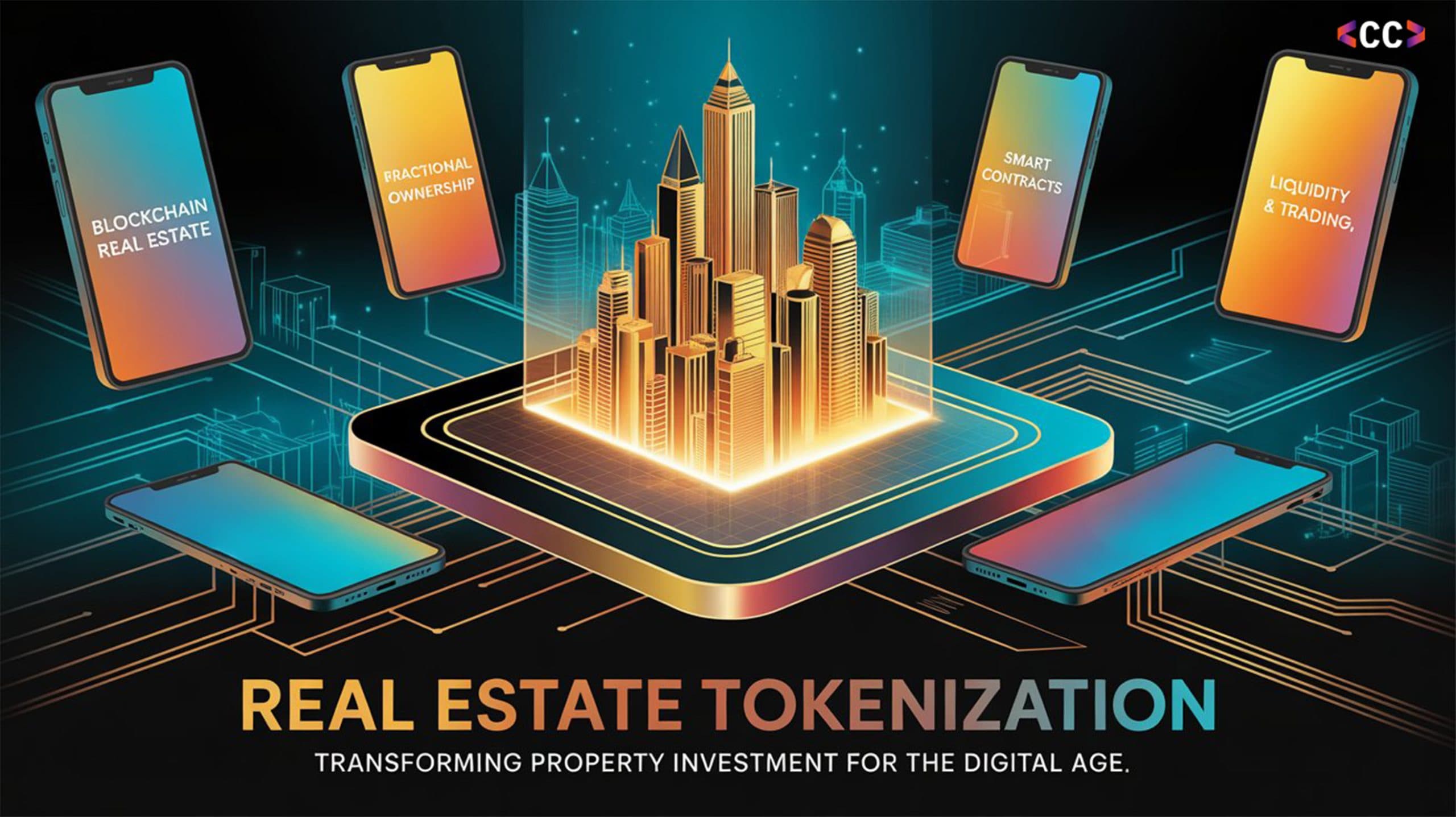Blockchain
5 months ago
Real Estate Tokenization: Transforming Property Investment for the Digital Age
A New Era in Real Estate Investment
The real estate market, traditionally known for high entry barriers, slow transactions, and limited liquidity, is undergoing a digital revolution. Real estate tokenization is at the forefront of this shift, enabling investors to buy and trade fractional ownership of properties with unprecedented ease. By combining the stability of real estate with the efficiency of blockchain technology, this approach is reshaping how assets are managed, traded, and valued.
ChainCode Consulting helps investors, developers, and institutions explore the potential of tokenized real estate- ensuring compliance, security, and scalability in every project.
What is Real Estate Tokenization?
Real estate tokenization is the process of converting ownership rights in a property into digital tokens on a blockchain. Each token represents a fraction of the asset, allowing investors to buy, sell, or trade portions of real estate just like stocks or cryptocurrencies.
The process involves:
- Asset Selection – Choosing properties suitable for tokenization
- Legal Structuring – Ensuring ownership rights and investor protections
- Blockchain Integration – Issuing tokens with smart contract functionality
- Investor Onboarding – KYC/AML compliance for regulatory safety
Benefits of Real Estate Tokenization
1. Lower Entry Barriers
Investors no longer need to commit large sums—fractional ownership allows participation with smaller investments.
2. Improved Liquidity
Unlike traditional real estate, tokenized assets can be traded on digital marketplaces, reducing lock-in periods.
3. Global Investor Access
Blockchain platforms connect property markets to a worldwide investor pool.
4. Transparency and Security
Immutable blockchain records ensure secure, transparent transactions.
5. Faster Settlement
Smart contracts automate transactions, reducing paperwork and delays.
How Real Estate Tokenization Works in Practice
- Property Valuation & Structuring – Determine market value and set up the legal entity holding the property.
- Token Issuance – Create blockchain-based tokens representing ownership shares.
- Investor Distribution – Offer tokens to accredited or retail investors, depending on regulations.
- Trading & Management – Allow token holders to trade or hold for rental income and appreciation.
Applications of Real Estate Tokenization
Commercial Properties
Office buildings, shopping centers, and warehouses can be fractionalized for institutional and retail investors.
Residential Assets
From luxury apartments to single-family homes, tokenization makes high-value properties more accessible.
Mixed-Use Developments
Investors can diversify holdings across retail, hospitality, and residential units in a single project.
Land Investments
Agricultural and undeveloped land can be tokenized for long-term investment opportunities.
Why Real Estate Tokenization is the Future
Tokenization aligns with global trends toward digitized assets, decentralized finance (DeFi), and cross-border investment. By breaking down barriers to entry and enabling instant, secure transactions, it offers unmatched potential for growth in property markets.
According to industry forecasts, tokenized real estate could represent a multi-trillion-dollar market within the next decade—creating unprecedented opportunities for both investors and developers.
Start Your Real Estate Tokenization Journey with ChainCode Consulting
The real estate industry is evolving and tokenization is leading the charge. Whether you’re an institutional investor seeking diversification or a property developer looking to unlock capital, ChainCode Consulting provides the strategy, technology, and compliance framework to make your tokenization project a success.
Book a consultation today and explore how tokenization can redefine your real estate investment approach.

